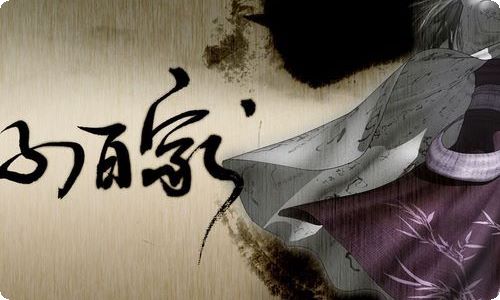
湘少版五年级英语上册《Unit 12 The Spring Festival》中英双语教案
Period 1
一.教学目标:
1.能掌握中国传统佳节——春节的一些风俗的表达方法;
2.培养学生的阅读能力。
二.教学重点及难点
1.重点:描述春节的情景。
2.难点:掌握与春节有关的词汇。
三.教学准备
红包、花炮、春联、福字等实物或单词卡片、教学挂图、教学磁带等。
四.教学步骤
Step 1 Warming up
1.师生问候。
2.自由对话。
T: What’s the date today?
Ss: …
T:(出示春联) What’s this ?
Ss: 春联.
T: When do you put this on your door?
Ss: We often put them on the door before “chunjie”
T: Spring Festival is “chunjie”. Today we’ll learn something about the Spring Festival.
板书课题.
Step 2 Presentation and drill
1.T: The Spring Festival is an important festival in China. It is the same as Christmas in America. Do you like the Spring Festival?
Ss: Yes.
T: But why? Who can tell me some customs during the Spring Festival? What do you do during the Spring Festival?
鼓励学生大胆表达。
T: You are very clever. But do you know how to say these in English?
通过实物或单词卡片呈现新单词和短语 a family dinner, exchange red packets ,burn firecrackers, lion dance, dragon dance.板书单词并带读。
2.让学生快速阅读课文A部分,了解文章大意。
T: Different people have different ways to celebrate the Spring Festival. Now please read the text to find out how the Li’s family celebrate the Spring Festival.
Step 3 Practice
1. 听课文A部分录音,回答问题。
What is the Li’s family doing?
2.再次阅读课文,讨论并完成以下问题。
What is the Li’s family shopping for?
What does Mingming enjoy doing?
Who will come to Mingming’s house on the eve of the Spring Festival?
Who enjoy the Festival most? Why?
What do children receive?
What do they do during the day?
Step 4 Consolidation
1.两人一组根据关键词(shop for, enjoy shopping, on the eve of the Spring Festival, have a meal, wear, receive, burn firecrackers, watch, have great fun )复述课文。
选几位同学分别表演调皮学生和老师,表演课文A部分。要求表演夸张,幽默,不出声。另选一位学生为他们的表演配音。
2.评价。
3.练习。
4.家庭作业。
Period 2
教学目标
1.能掌握有关春节的词汇;
2.让学生搜集素材,了解不同的人是怎样过春节的。
教学重点及难点
重点:掌握有关春节的词汇并熟练地运用于描述春节的一些风俗。
难点:理解及运用词汇。
教学准备
红包、日历卡片等实物,学生所查资料,教学挂图,单词卡片,教学磁带等。
教学步骤
Step 1 Warming up
1.师生问候。
2.自由会话。
出示一张母亲节日历卡片。
T: What day is today?
S: It’s Sunday.
T: Yes, and today is Mother’s Day .
用同样的方式介绍中国的春节、元宵节、端午节、中秋节以及西方的圣诞节、感恩节和万圣节等节日。
Step 2 Presentation and drill.
1.T:The night on December 24th is called the Christmas Eve, then how do we call 年三十?
帮助学生回答:Eve of Spring Festival.然后出示单词卡片eve of Spring Festival ,鼓励学生自由联想并大胆说出与春节除夕有关的一切事物,用中英文说出均可(red packets, a family reunion dinner, burn firecrackers, cleaning, 吃饺子,贴对联,拜年等)培养学生的发散性思维。想象力丰富且知识面广的'学生可获奖励。
2.听课文C部分录音,跟读。
Step 3 Practice.
1.两人一组,练习课文C部分对话。
游戏——Super little hero (超级小英雄)
将学生分成两大组进行比赛。首先各组派出代表回答必答题;然后进行抢答。抢到的问题可以自己回答也可以把问题留给对方回答。答对了加分,答错减分。积分多的为超级小英雄。所问问题可以是有关东方节日的也可以是有关西方节日的。
Why do people exchange oranges?
Who give the children red packets?
What other customs does Lingling have?
What customs do American people following during the Christmas?
2.学生互相交换搜集的资料,并将有趣的信息讲述给大家听。培养学生的研究性学习的能力。
资料:
New Year’s Day ——新年(1月1日)
同全世界人民一样,美国人也喜欢庆祝每个新年的到来。几乎所有人都把除夕作为送旧迎新的时刻来庆祝。12月31日(New year’s Eve)在纽约,人们最喜欢聚会的地方是纽约的时代广场。成千上万的美国人和国际游客拥挤在这块胜地,翘首观望来回移动的电子控制牌,上面不时的闪现着 新年好 的字幕。当新的一年的一刹那到来的时候,喧闹声骤然四起。钟声响了,汽笛响了,人们欢呼雀跃,沉醉在幸福的激情之中。
许多教堂在除夕举行守岁仪式。去教堂的人可以向上帝献上他们新的一年的决心。看望朋友、亲戚和邻居的风俗是新年各种常见的活动之一。这个活动叫做 “开放门户”。
Easter——复活节(3月21日或其后月满之后的第一个星期天。)
Thanksgiving Day ——感恩节 (11月的第4个星期四)
Step 4 Consolidation
1.创设情景,自由会话。
情景:过年。(让学生自由讨论自己家过年的情形。)
S: Before the Spring Festival, my family is always …
3.评价。
4.练习。
5.家庭作业。
Period 3
教学目标
1.通过小型新年联欢晚会,达到熟练运用语言的目的;
2.能熟练诵读课文F部分的英语歌谣;
3.介绍自己家乡的新年风俗,并邀请同学合作完成一项新年的活动。
教学重点及难点
重点:在活动中熟练运用语言。
难点:熟练的使用语言进行口头、笔头交际。
教学准备
单词卡片、英语歌曲Happy new year!、教学磁带等。
教学步骤
Step 1 Warming up
1.师生问候。
2.演唱英语歌曲Happy new year!
Step 2 Presentation and drill
课文D部分
T: Now Spring Festival is coming. Many people buy flowers and put them in their homes. Please read Part D and tell me:
What do people say when they meet?
What can children get from their parents, uncles and aunties?
让学生快速阅读课文然后回答问题。
Step 3 Practice
1.听课文D部分录音,跟读。然后完成笔头练习。
2.学习课文F部分英语歌谣。
Step 4 Consolidation
全班一起举行一个小型的新年晚会。教师首先放音乐Happy New Year!,让学生感受节日的气氛。然后,由学生们一起诵读课文F部分英语歌谣.
T: The Spring Festival is coming. Let’s spend the time together and share the happiness.
S1: The Spring Festival is here, everybody is happy. Let’s sing and dance.
2.创设情景,自由会话。
情景:过年。让学生们自由组合,组成家。各家讨论如何欢度即将到来的春节。然后挑选其中一家,将他们过年的情形表演出来。
3.评价。
4.练习。




